What I Think Is Crossword is a fascinating guide that unveils the intriguing world of crossword puzzles, offering a fresh perspective on this beloved pastime. This book explores the art of solving crosswords, revealing the cognitive benefits and challenges it presents, while also providing practical strategies for deciphering clues and filling in the grid.
With its captivating overview of crossword history, culture, and community, What I Think Is Crossword is an engaging read for both seasoned crossword enthusiasts and those new to the world of puzzles.
Understanding the Concept of Crossword Puzzles
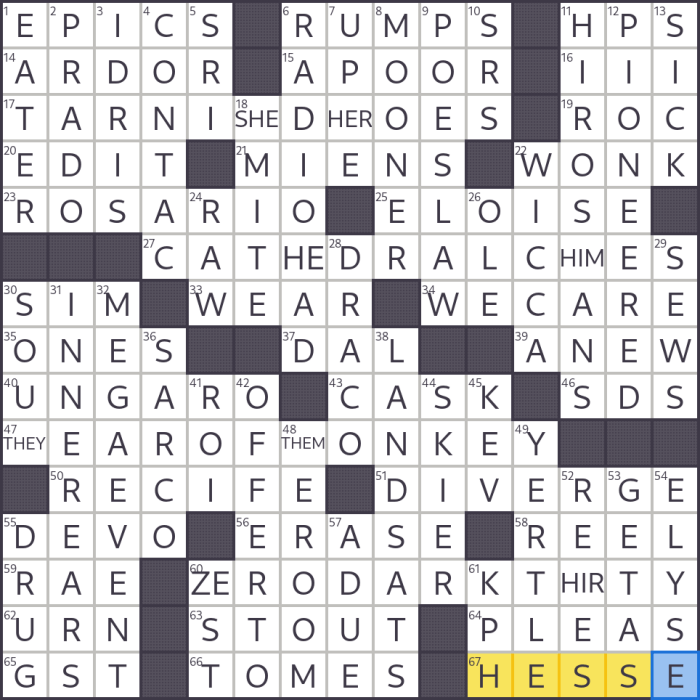
Crossword puzzles are word games that challenge players to fill in a grid with words that intersect and fit the clues provided. They are typically presented as a square or rectangular grid, with black squares that indicate the beginning and end of words.
To solve a crossword puzzle, players must use their knowledge of vocabulary, grammar, and logic to deduce the answers to the clues. Clues can be straightforward definitions, synonyms, or cryptic riddles that require lateral thinking.
Crosswords have always been a favorite pastime of mine, and I recently discovered Ravens Quest: Art of Zoo , a captivating online crossword puzzle that combines the classic game with stunning animal photography. It’s a unique and engaging way to exercise my brain and appreciate the beauty of the animal kingdom simultaneously.
Types of Crossword Puzzles
- Cryptic Crosswords:Known for their challenging and often witty clues that require a high level of language proficiency and problem-solving skills.
- Themed Crosswords:Center around a specific theme, with clues and answers related to that theme.
- Diagramless Crosswords:Present the grid without any black squares, requiring solvers to deduce the word boundaries based on the clues.
Cognitive Benefits and Challenges of Solving Crossword Puzzles
Solving crossword puzzles offers several cognitive benefits, including:
- Enhanced Vocabulary:Exposure to a wide range of words and definitions.
- Improved Problem-Solving Skills:Requires logical thinking and the ability to connect disparate pieces of information.
- Memory Strengthening:Recalling words and their meanings to fill in the grid.
However, crossword puzzles can also pose challenges, such as:
- Frustration:Unfamiliar clues or difficult wordplay can lead to frustration.
- Time-Consuming:Solving complex puzzles can take a significant amount of time.
- Addiction:The satisfaction of solving puzzles can lead to excessive engagement.
Decoding Crossword Clues
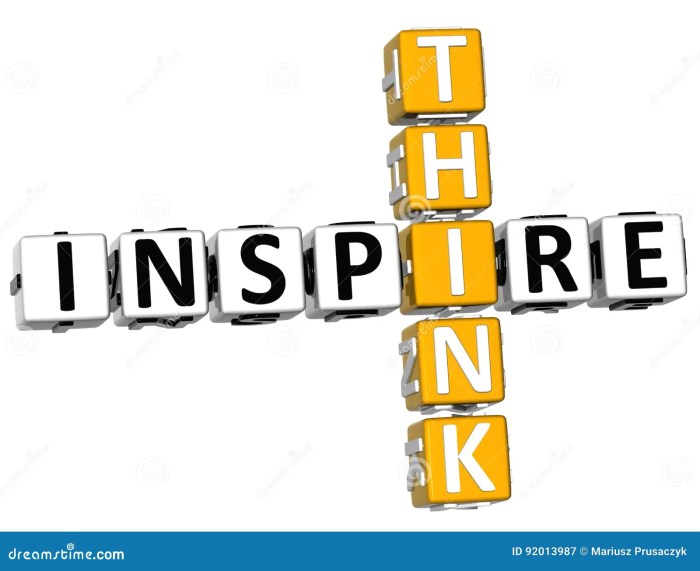
Crossword puzzles present a fun challenge, and deciphering the clues is a crucial part of solving them. Clues come in various types, each requiring specific strategies to decode.
Definition Clues
These are straightforward clues that provide a direct definition of the answer. For example, “A large, flightless bird” would lead to the answer “OSTRICH.”
Anagram Clues
Anagram clues involve rearranging the letters of a given word or phrase to form the answer. They often use phrases like “letters mixed up” or “anagram of.”
Homophone Clues
Homophone clues use words that sound the same but have different spellings and meanings. For example, “Sounds like a sea” would lead to the answer “SEA.”
Cryptic Clues
Cryptic clues are more complex and often require lateral thinking. They may use wordplay, puns, or hidden meanings to lead to the answer.
Strategies for Deciphering Clues
- Read the clue carefully and identify the type of clue it is.
- Look for key words that indicate the type of clue, such as “definition,” “anagram,” or “homophone.”
- Break down the clue into smaller parts and try to understand each part individually.
- Consider different meanings of words and possible synonyms.
- Use reference materials such as dictionaries, thesauruses, and online tools like anagram solvers.
Filling in the Grid
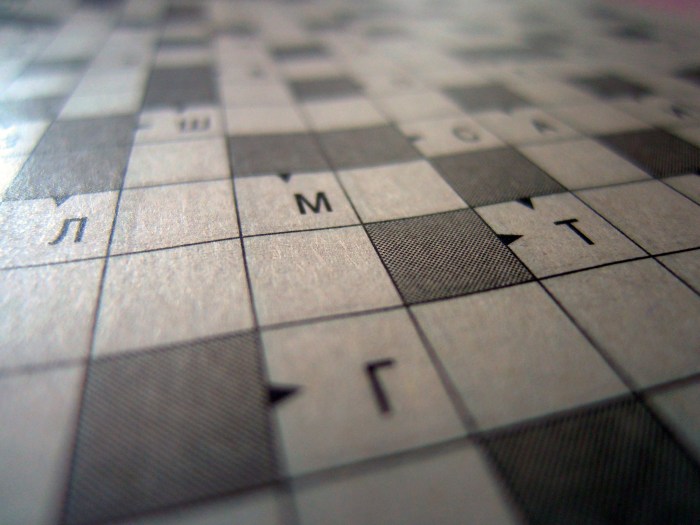
The process of filling in the grid involves a combination of techniques and strategies to deduce the correct letters for each square.
Letter Patterns
Many words in the English language follow specific letter patterns. For instance, words often end in common suffixes like “-ing”, “-ed”, or “-tion”. Recognizing these patterns can help you narrow down the possible letters for a particular square.
Intersecting Words
Crosswords often feature intersecting words that share letters. By solving one word, you can gain valuable information about the letters in the intersecting words.
Trial and Error, What i think is crossword
Sometimes, you may need to resort to trial and error. Experiment with different letters until you find one that fits all the clues and intersects correctly with the other words.
Tips
- Use pencil and eraser to keep track of your progress. This allows you to easily change letters if necessary.
- Start with the easiest clues first. This will give you a foundation to build upon.
- Don’t get discouraged if you get stuck. Take a break and come back to it later with a fresh perspective.
Theming and Patterns
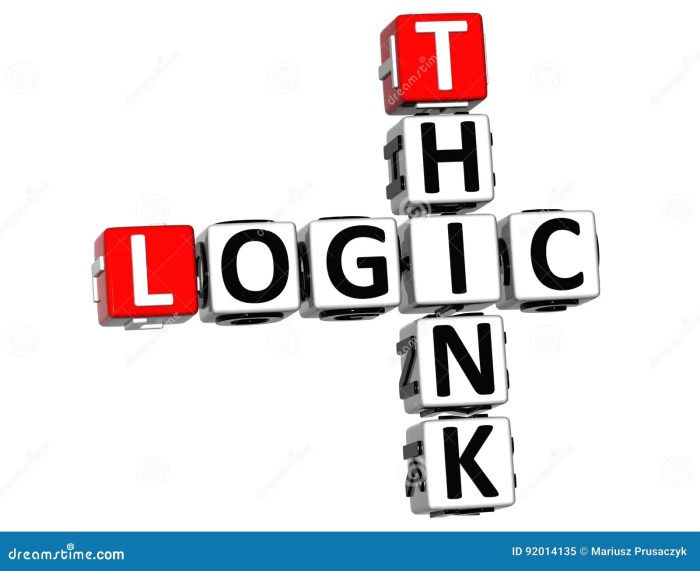
Crossword puzzles often incorporate themes and patterns to add an extra layer of challenge and enjoyment. Themes can range from pop culture references to historical events or scientific concepts.
Thematic crosswords often feature a central theme that ties together the clues and answers. For example, a puzzle about famous authors might include clues related to their works, characters, or personal lives.
Symmetry and Wordplay
Symmetry and wordplay are essential elements of engaging crossword puzzles. Symmetry refers to the balance and arrangement of the grid, ensuring that the puzzle is visually appealing and easy to navigate.
Wordplay involves the use of puns, anagrams, and other linguistic tricks to create clever and challenging clues. These clues often require solvers to think outside the box and use their creativity to find the correct answers.
Solving Strategies: What I Think Is Crossword
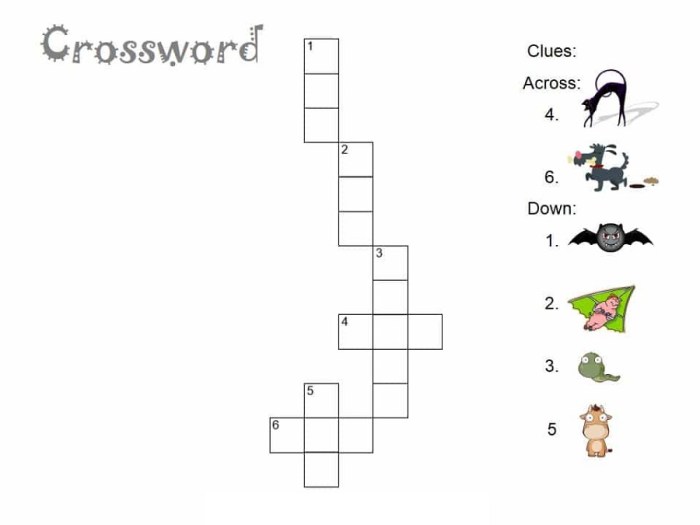
Crossword puzzles are like a mental workout that requires patience, persistence, and a positive mindset. Here are some strategies to help you approach them effectively:
Starting Points
Start with easier clues. Look for clues that have obvious answers or are related to familiar topics. Focus on sections where you have some knowledge, such as a specific category or type of clue.
Time Management
Manage your time wisely. Set a timer for yourself to avoid spending too much time on one clue. Take breaks when needed to clear your mind and come back refreshed.
Avoid Frustration
Don’t get discouraged if you get stuck. Use a pencil and eraser to try different options and don’t be afraid to guess. If you’re really struggling, look up the answer and don’t feel bad about it. Remember, it’s a game, and the goal is to have fun.
Crossword Culture and Community
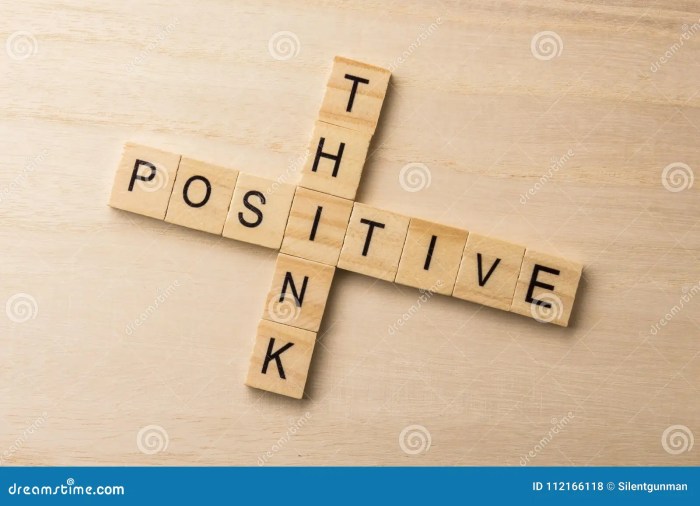
Crossword puzzles have evolved from humble beginnings into a beloved pastime enjoyed by millions worldwide. In the early 20th century, crosswords gained popularity in newspapers and magazines, providing a challenging and entertaining way to pass the time. Over the years, the crossword community has grown and diversified, with the emergence of crossword tournaments, clubs, and online forums.
These platforms foster a sense of community among crossword enthusiasts, offering opportunities for collaboration, competition, and the sharing of knowledge.
The Role of Technology
Technology has revolutionized the way people solve and share crossword puzzles. Online crossword solvers and apps make it easy to access and complete puzzles from anywhere. Social media platforms and online forums provide spaces for crossword enthusiasts to connect, discuss strategies, and share their accomplishments.
Additionally, digital crossword tools have emerged, such as anagram solvers and thesaurus databases, making it easier to find the right words and solve even the most challenging puzzles.
FAQ
What is the best way to start solving crosswords?
Begin with easier puzzles and focus on deciphering shorter, simpler clues. Gradually increase the difficulty as you gain confidence.
How can I improve my crossword-solving skills?
Practice regularly, expand your vocabulary, and learn different clue types and solving strategies. Reference materials and online tools can also assist you.
What are the benefits of solving crosswords?
Crosswords enhance cognitive function, improve vocabulary, and provide mental stimulation. They can also be a relaxing and enjoyable pastime.